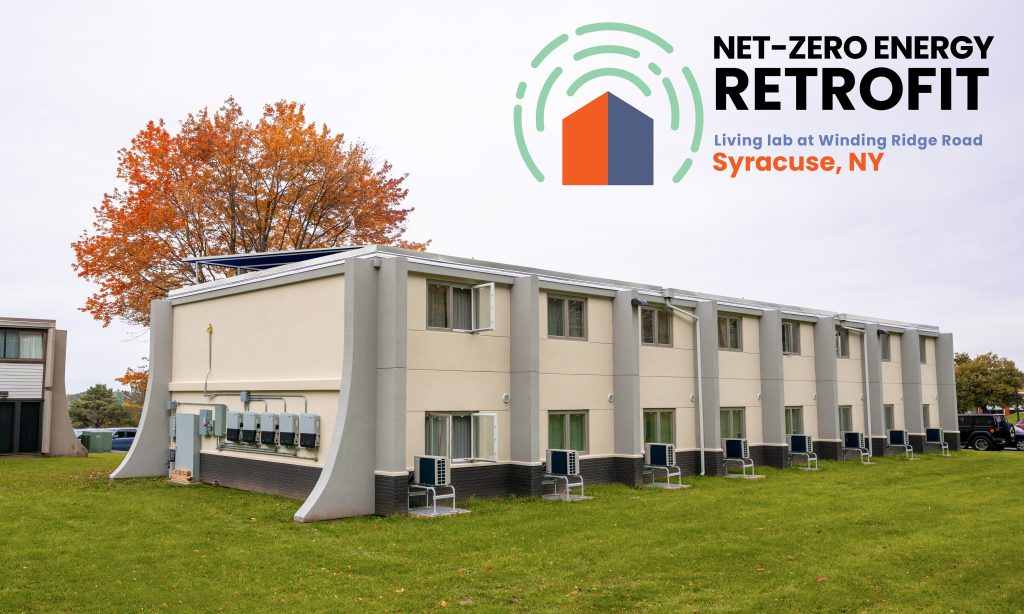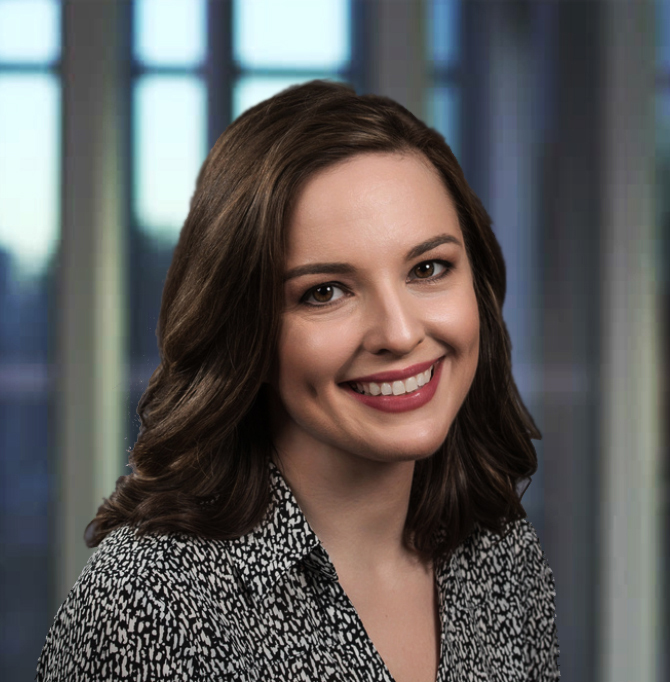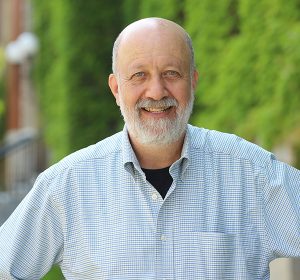New York State has launched initiatives aimed at reducing the energy use and carbon emissions of buildings through the implementation of Deep Energy Retrofits (DERs). Syracuse University is leading research efforts to develop replicable, economical approaches to Deep Energy Retrofits by aligning laboratory testing of new technologies, computational modeling, and full-scale physical testbeds.
For SyracuseCoE’s November 2023 Research & Technology forum, Professor Nina Wilson presented her team’s work at the Net Zero Energy Retrofit Living Lab, a three-year project at Syracuse University. This research effort is focused on the development of replicable approaches to deep energy retrofits to improve building energy efficiency, indoor air quality for human health, and thermal and visual comfort for thousands of existing multifamily buildings in New York’s cold climate.

The Living Lab’s retrofitting system is currently in use on Syracuse University’s South Campus, with the short-term goal of improving climate control and energy usage for student apartments on Winding Ridge. Aligning laboratory testing of new technologies with computational modeling and a full-scale testbed, the project will analyze and improve the effectiveness of retrofit design and technical strategies. Principal investigator Nina Wilson is a SyracuseCoE Faculty Research Fellow and Assistant Professor of Syracuse University’s School of Architecture.
The Living Lab is funded by the New York State Energy Research and Development Authority (NYSERDA) Energy to Lead program and is part of a larger effort to advance the state of practice in retrofits to achieve building decarbonization goals. New York’s Climate Action Plan aims for zero emissions statewide by 2050, and research in deep energy retrofits plays an important role in accomplishing that goal.
SPEAKER:

Nina Wilson, Assistant Professor, Syracuse University School of Architecture
Wilson’s work questions the anthropocentric lensing of resilience in architecture through circular ecological framing of design, sustainable policy, and technology in buildings. With multi-year research awards exceeding $9 million in federal, state, and foundation funding, Wilson currently leads projects developing low-carbon material technologies, active building enclosure systems, deployable bioconstruction methods, and deep energy retrofit approaches for cold climates. She advises PhD, Master of Science, Master of Architecture, and Bachelor of Architecture thesis students, and teaches sustainable building technology and design research courses at the Syracuse University School of Architecture. Wilson operates her interdisciplinary research lab as a Faculty Research Fellow from the Syracuse Center of Excellence.
MODERATOR:

Ian Shapiro, Associate Director of Building Science and Community Programs, SyracuseCoE
Ian M. Shapiro is an expert in building science, green building design and retrofits, affordability in approaches to reduced carbon emissions, and more. Shapiro holds both an undergraduate degree and M.S. in Mechanical Engineering from McGill University and Columbia University, respectively. He is the founder of Taitem Engineering and the 2016 recipient of the New York State Green Building Conference’s ‘Green Building Advocate of the Year‘ award. Shapiro has also authored two building energy-focused publications, Energy Audits and Improvements in Commercial Buildings (2016) and Green Building Illustrated, 2nd edition (2020). He brings over 35 years of industry experience to Syracuse. In addition to his role at SyracuseCoE, he is a Professor of Practice in Mechanical and Aerospace Engineering.
